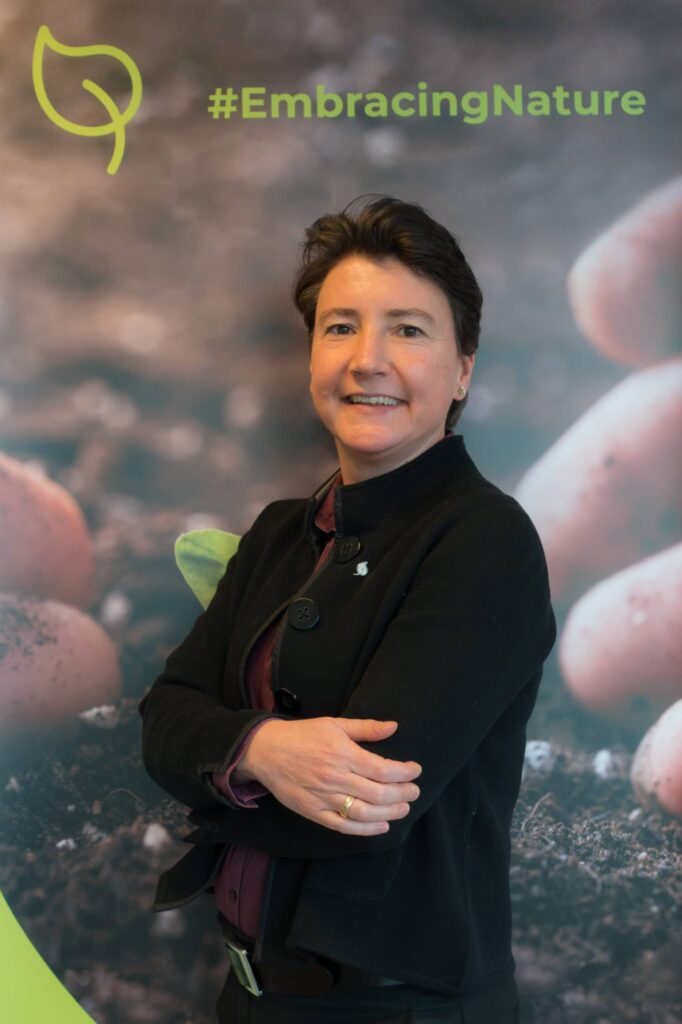Advocating for Seeds Within Europe

Petra Jorasch is the manager of plant breeding innovation advocacy at Euroseeds. She plays a crucial role in advocacy and regulatory affairs. She works with stakeholders, policy makers, industry representatives and the broader scientific community to promote a better understanding of plant breeding innovations and to ensure that the regulatory environment supports scientific advancement and agricultural productivity.
SW: What are the key factors contributing to the perception that the European regulatory environment is complex?
Jorasch: When it comes to GMOs and the regulation of GMOs, it’s just a very burdensome and very expansive regulatory framework. For conventional seeds, it’s not very complex, and it’s also harmonized on an EU level, meaning member states need to comply to the same rules and regulations. But when it comes to GMOs, and specifically NGTs, which are currently considered GMOs in Europe, until we have a new regulation in place, that’s very complex and very challenging.
SW: Tell us about the current flux in the regulatory landscape.
Jorasch: In 2018, the European Court of Justice decided that all new genomic techniques (NGTs) or new breeding techniques, as they were called at the time, would be considered to lead to genetically modified organisms and be regulated as such. The European Council asked the EU Commission to assess if the current regulatory situation is fit for purpose. After the study, the Commission came up with a proposal to regulate what they call new genomic techniques in a different manner than classical GMOs.
SW: Do you think that it will pass this year, or could it stretch on?
Jorasch: The EU Parliament came to a conclusion already. The Council – not yet. Depending on when the Council will conclude, the three institutions (Commission, Council, Parliament) can start negotiating a compromise text. This process is called trilogue. We have European elections this year beginning of June and this interrupts the policy process in a sense that the new Parliament first needs to establish itself before they can enter the discussions.
SW: Can you explain Category One and outline how companies might ensure they remain in a Category One?
Jorasch: This Category 1, as it is called, defines what type of genetic changes introduced by NGTs can be considered conventional-like and regulated different from GMOs. I would advise companies to look at the Commission proposal; that draws some lines and presents certain technical criteria. Staying within that concept would be the most promising way of doing it. The amendments to the criteria that we have seen from the Parliament are opening up a bit so, if you stay within the Commission proposal, you would likely also be within what the current Parliament has adopted.
Category One will allow 20 genetic modifications of certain types, which means single mutations or deletions of parts of the DNA. They also allow the introduction of so-called cis genes, which is a gene from a sexually compatible species that you can also exchange by crossing and selection.
SW: For companies that are currently trading, what are the current guidelines for NGTs?
Jorasch: Currently NGT plants and resulting products are GMOs and you need to have a full approval as a genetically modified organism or product. For the past more than 20 years, no company has ever obtained cultivation approval in Europe. The only cultivation approval we currently have is Bt corn grown in Spain and Portugal. I don’t expect any company to try this. What I expect and what we already see is that some companies and also research institutions aim for field trials. They are still under the GMO requirements, but there are already some field trials with NGT potatoes in Sweden, as well as maize field trials in Belgium.
SW: So the proposed changes would actually open this up a little bit more and create more opportunity?
Jorasch: Absolutely, and we see that some member states already opening up a bit. These GMO field trials weren’t possible over the past 15 or 20 years, and Italy now opened up and allows for field trials with NGTs. There’s some hope with member states to acknowledge that these products are different. They are still falling under the current regulatory GMO requirements, but they see the difference and they want to make it happen.
Next: Kevin Diehl, David Zaruk













